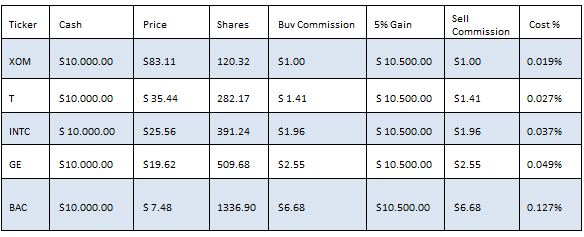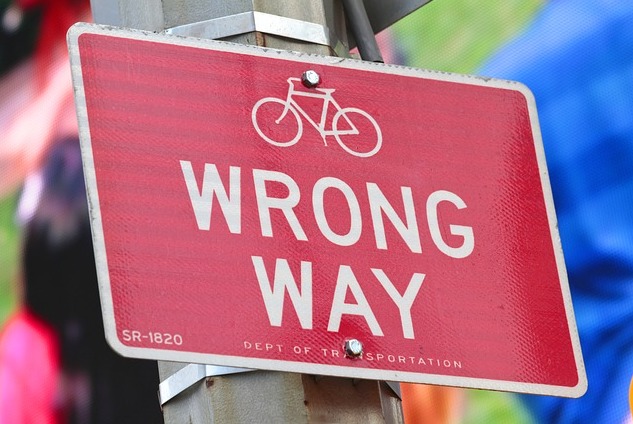Author: Clinch Capital
Covestor model: Select Equity
There are many ways to lose money in the stock market. The most common methods are so well established that traders often set rules to prevent them from negatively affecting their accounts.
One of the most widely shared pieces of advice from seasoned stock traders is to not overtrade. There are several reasons why overtrading may be detrimental to ones’ account. One of the most overlooked reasons is the accumulation of trading commission costs.
As a Covestor model manager, I trade through Interactive Brokers. Interactive Brokers is an exceptional broker with extremely low trading costs ($1 for every 200 shares). Even so, those trading costs can have an appreciable impact on trading results. Consider a hypothetical situation where you have $10,000 and want to buy a position in a well-known large cap company. Let’s assume you realize a 5% gain in your trade and close the position. The following table summarizes some potential results (click to enlarge):
Depending on which company you purchased, your trading cost varied from 0.019-0.127% of your starting capital. That may not seem significant, and it’s not for a one-time, small purchase. However, it does add up over time. For example, if you made 100 trades with a 0.1% cost per trade that would ultimately cost you 10% of your trading capital. Clearly, overtrading is a good way to bleed your account to death.
When trading the Select Equity Model, I often buy fully into a new position in a single trade. I do this for two reasons: 1) statistical analysis of the model consistently shows the best results are obtained when positions are accumulated as soon as a buy signal triggers, and 2) to keep the commission costs as low as possible.
AlphaLab



